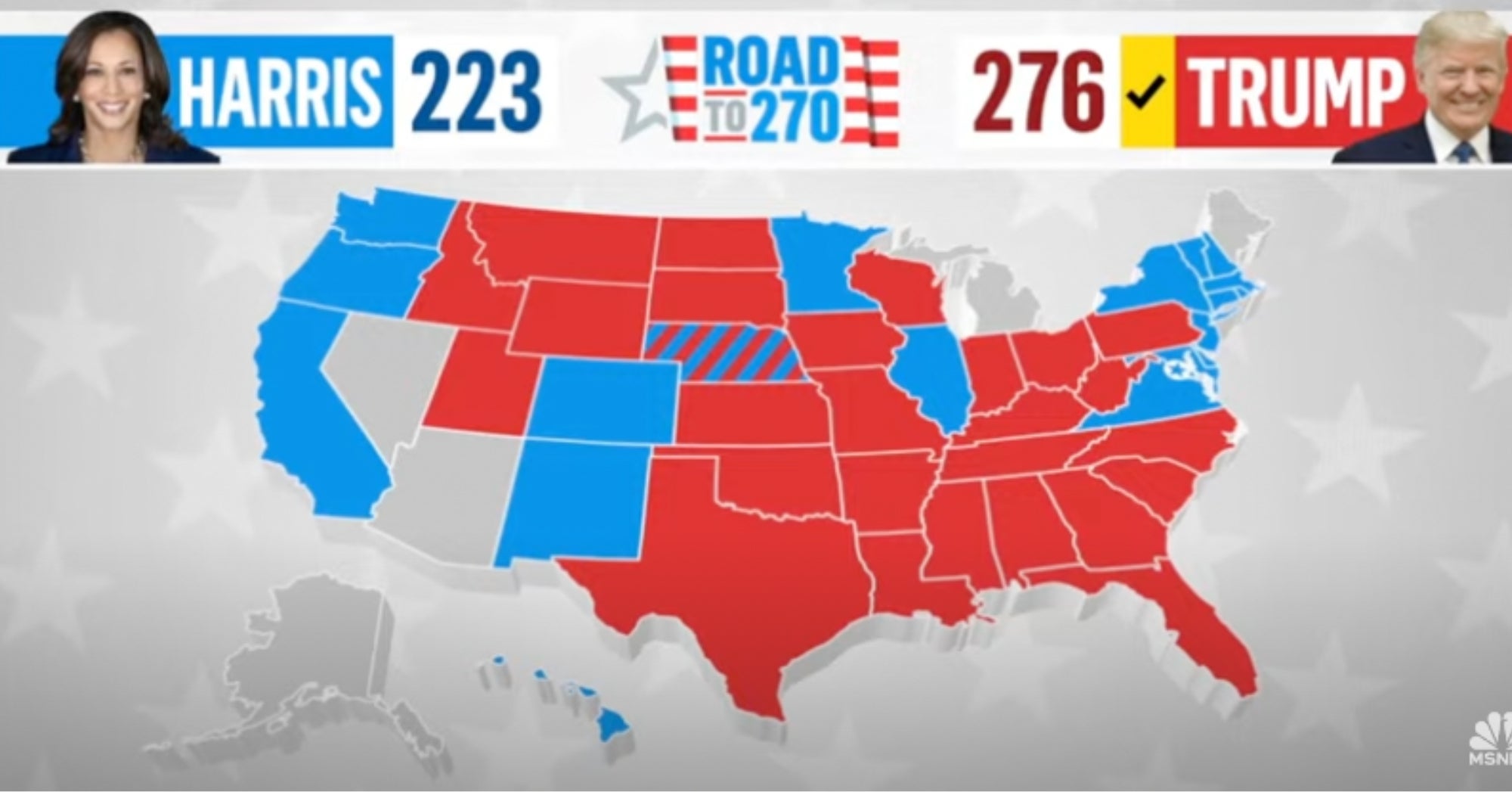By this morning, Republicans had regained the White House and Senate, with Donald Trump slated to return to office in January as the 47th president, marking a historic comeback. Trump’s victory — secured through key battlegrounds like Wisconsin, Georgia, and North Carolina — saw him exceed the 270 electoral vote threshold needed to reclaim the presidency.
His opponent, Vice President Kamala Harris, faced significant challenges in swaying voters who had grown dissatisfied with the current administration’s trajectory.
While Republicans celebrate their expanded influence, the balance of power in the House remains uncertain, with dozens of competitive races still being counted. This political shift sets the stage for potential changes that will ripple through numerous sectors, particularly agriculture, where policy and regulation are often tightly aligned with administration priorities.

As the dust settles, agricultural organizations are weighing in on what the Republican win might mean for key issues, from farm subsidies and trade agreements to immigration and environmental policies.
Their perspectives offer insight into how the sector could be reshaped under new leadership. Here’s what they have to say:
American Farm Bureau Federation President Zippy Duval
“Farm Bureau congratulates President-elect Donald Trump on his election to lead our great nation, as well as the representatives and senators elected to serve in the 119th Congress. We are committed to working with our nation’s leaders to strengthen agriculture and rural America, and we look forward to continuing that work in the days ahead.
“Now that the American people have spoken, it’s time to put politics aside and begin the work of ensuring families nationwide can prosper. Among the most pressing issues in rural America is the need for a new, modernized farm bill. The two-year delay is unacceptable. The new administration must also address the impending tax hikes, which would crush many of America’s farmers and ranchers when stacked on top of inflation, high supply costs, and market instability. Another big issue on farmers’ minds is the labor shortage and skyrocketing costs.
“There is no shortage of critical issues requiring immediate attention, and Farm Bureau stands ready to work with our elected leaders to tackle them. Clearing hurdles for America’s farmers and ranchers will contribute to the strength and continued growth of the entire nation.”
National Corn Growers Association President Kenneth Hartman Jr.
“On behalf of corn growers across the country, I want to congratulate President-Elect Donald J. Trump on his victory in Tuesday’s election. We look forward to working with the new administration and members of Congress to advance policy that is important to corn farmers. We especially appreciate President Trump’s recognition that homegrown fuels, like ethanol, are important for our nation’s energy security and rural economies. We are also eager to work with his administration and Congress to enact improved farm policies and programs, expand market opportunities, and build on the tax policies enacted during President Trump’s first term that are beneficial to corn farmers as they face a challenging financial outlook with low prices and high costs.”
Associated Equipment Distributor’s President and CEO Brian McGuire
“Congratulations to President-Elect Donald J. Trump on a successful, hard-fought campaign. AED looks forward to collaborating with the Trump administration and the next Congress to advance our pro-growth, job creating policy agenda.”
“Our country stands at a crossroads where bipartisan cooperation is not just necessary — it is essential. We must rise above gridlock and inaction. Together, Republicans and Democrats have the responsibility to maintain a tax code that fosters growth, to invest in our infrastructure and rural communities, and maintaining and nurturing the next generation of skilled workers who will shape our future. The prosperity of the United States depends on these commitments, and AED members are ready to play a key role in building, feeding, and fueling the country. Now is the time for our elected leaders to set aside partisan divides, prioritize these critical issues, and work hand in hand for the success and future of our nation.”
Union of Concerned Scientists
The Union of Concerned Scientists warns that a second Trump administration could significantly harm the U.S. food system. They predict increased immigration deportations that would disrupt the agricultural workforce, higher tariffs leading to rising food prices and economic instability for farmers, and new attacks on food assistance programs like SNAP.
UCS also fears that Trump’s policies would further favor large agribusinesses while undermining conservation programs and environmental protections, particularly through the rollback of climate action and the elimination of USDA policies addressing climate change and equity.
In a recent interview on Joe Rogan’s podcast, former President Donald Trump confirmed that Robert F. Kennedy Jr., the former presidential candidate and advocate for the “Make America Healthy Again” movement, would have a significant role in his administration if Trump were to win the 2024 election.
During a campaign event in New York City on Oct. 27 Trump told the crowd, “‘I’m gonna let him go wild on health. I’m gonna let him go wild on the food. I’m gonna let him go wild on medicines,’” signaling a bold approach to health and food policy under Kennedy’s guidance.
Kennedy, who has already outlined plans to reform the agriculture system, emphasized the need for a shift in current U.S. policies that harm both the environment and family farms. “When @realDonaldTrump gets me inside the USDA, we’re going to give farmers an off-ramp from the current system that destroys soil, makes people sick, and harms family farms,” Kennedy said. He continued, highlighting the challenges small farmers face under the current system, adding, “America’s current ag policy is destroying America’s health on every level. It’s destroying the economic health of farmers by forcing them to get big or get out.”
When @realDonaldTrump gets me inside the USDA, we’re going to give farmers an off-ramp from the current system that destroys soil, makes people sick, and harms family farms.
If you want this to happen as much as I do, PLEASE DONATE TODAY ➡️ https://t.co/YxxGkb2Ulq pic.twitter.com/npo6ZEiIo6
— Robert F. Kennedy Jr (@RobertKennedyJr) October 30, 2024
Kennedy’s stance on banning agricultural chemicals has raised concerns. Critics like former Missouri Farm Bureau President Blake Hurst argue that some of Kennedy’s proposals may reverse the economic progress made during Trump’s first term, especially in terms of deregulation. Rod Snyder, a former EPA agricultural adviser, also voiced concerns about Kennedy’s reliance on personal views over scientific expertise in agricultural decisions. However, the Union of Concerned Scientists put out a blog post today supporting this stance, and taking a hard line against “big ag.”
On the scientific front, Kennedy has widely espoused positions against not only crop protection productions but also fluoride in drinking water and the use of seed oils in food products. He also positions himself as a “vaccine skeptic.”
This article will be updated as more farm- and food-focused organizations make statements about the presidential election results.


